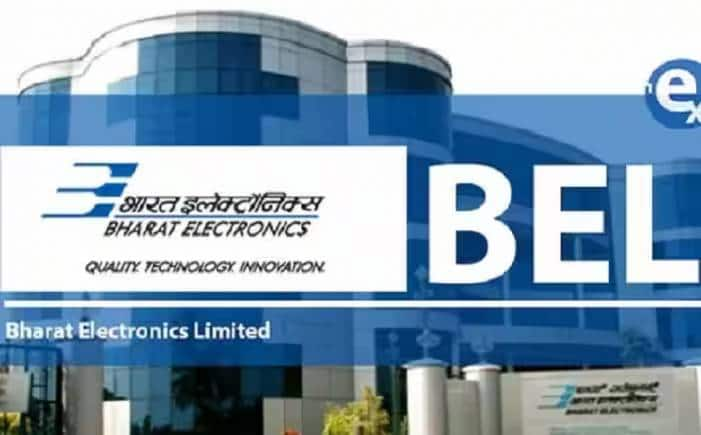
Karnataka has decided to impose a 10 percent road tax on EVs priced above Rs 25 lakh.
With a number of state governments ending 100 percent tax exemption for electric vehicles (EVs), questions are being asked about how this will affect efforts to make electric mobility more affordable and accessible for customers.
Karnataka is the most recent state to end 100 percent road tax exemption for EVs. The Karnataka Motor Vehicle Taxation (Amendment) Act, 2024, received Governor Thaawarchand Gehlot's assent on March 6. The taxation amendment empowers the state government to impose a lifetime tax on electric vehicles (EVs). "Motor cars, jeeps, omnibuses, and private service vehicles running on electricity, with a vehicle cost exceeding Rs 25 lakh, will be subject to a lifetime tax of 10 percent of the vehicle's cost at the time of registration of a new vehicle," it states.
In March 2016, the Karnataka government exempted all EVs from paying road taxes. A senior Karnataka transport department official told Moneycontrol: "Initially, the plan was to impose a 20 percent tax on EVs priced above Rs 20 lakh. There was also a proposal to levy a 5 percent tax on those priced below Rs 20 lakh. However, following protests from lawmakers, including those from the Congress, it was decided to impose a tax (10 percent) only on vehicles costing above Rs 25 lakh."
However, the official hinted that taxes would be imposed on other categories of EVs in the next budget. "We've decided to impose taxes in phases instead of implementing them all at once. Not just us, but many other states are also considering this now, given the increase in the number of EVs. We cannot continue with 100 percent tax exemption for a long time, as motor vehicle tax is a major revenue source for state governments."
Karnataka is also under pressure to implement the Congress government's five guarantees, which cost the exchequer Rs 58,000 crore annually. The five guarantees are: 200 units of free electricity for all households; Rs 2,000 every month to every woman head of the family; 10 kg of food grains to every individual in below poverty line (BPL) families; Rs 3,000 per month for two years to unemployed graduates and Rs 1,500 per month for two years to unemployed diploma holders; free travel for all women across the state in state-owned buses.
According to the transport department official, the government expects to generate more than Rs 100 crore annually by imposing road tax (10 percent on vehicles above 20 lakh and 5 percent on vehicles below 20 lakh) on EVs.
Uniform tax structure needed for EVs
Speaking to Moneycontrol, Vivekananda Hallekere, co-founder of Bounce, a manufacturer of electric scooters, said: "I believe that incentives should be aimed at enabling faster adoption of EVs for economy vehicles rather than premium vehicles. I think the government has provided enough subsidies over the last three years across all segments, and now it's time to focus sharply on enabling more people to access subsidies. This would entail providing more subsidies to entry-level vehicles in all categories".
"Innovation will also thrive now that subsidy amounts are decreasing. We will witness innovation around battery-as-a-service this year and in the coming years," said Hallekere.
Last year, the Society of Manufacturers of Electric Vehicles (SMEV) called on the government to come up with a nationwide policy on exemption of road taxes for EVs. SMEV emphasised the importance of a uniform and favourable policy environment to promote the adoption of clean and sustainable transportation in India.
"I find it imperative to closely scrutinise the recent decision by Karnataka to impose a 10% tax on electric vehicles priced above R 25 lakh," said Uday Narang, founder and chairman of Omega Seiki Mobility, which makes commercial EVs, particularly 3-wheelers. "Such levies mustn't extend to commercial vehicles and lower-priced passenger vehicles to ensure sustained momentum in the transition to electric mobility."
He said the lack of consistency in policies across states and the centre raises concerns. "I advocate for a unified, nationwide approach with a focus on sustainability. It is my firm belief that there should be no duties on electric vehicles and emerging energy technologies like hydrogen, as they are pivotal for environmental wellbeing," said Narang. "To foster a united and progressive nation, these taxes should be withheld until the necessary scale for these products has been achieved."
Weighing in on the issue, K Vijaya Kumar, MD & CEO at SAR Electric Mobility, said: "The Karnataka government's decision to impose a 10% tax on EVs priced above 25 lakh reflects a focus on the luxury segment. However, I believe this measure won't significantly hinder the broader adoption of EVs, particularly in the two-wheeler segment. SAR Electric Mobility makes electric scooters.
Other states set to impose taxes
Sources say many other states/UTs are also considering imposing road tax on EVs. Telangana already taxes EVs. The state levies 11 percent road tax on electric cars priced below Rs 10 lakh, 14 percent on those in the Rs 10-20 lakh bracket, and 15 percent on cars priced above Rs 20 lakh.
Kerala levies a 5 percent tax on EVs. Andhra Pradesh began levying a 12 percent lifetime tax on EVs, including both passenger vehicles and two-wheelers, from June 7, 2023. In January 2024, the state government decided to exempt EVs from road tax for the period from February 1 2024 to July 7, 2024.
Uttar Pradesh and Tamil Nadu continue to exempt EVs from road tax. Uttar Pradesh decided to do away with road tax on EVs till October 2025, while the Tamil Nadu government has extended its 100 percent motor vehicle tax exemption for EVs till December 2025.
High-end EV buyers may stay away
"Road tax should not merely serve as a revenue-generating mechanism, but also as a means to ensure that heavily polluting vehicles are subject to higher taxation. Sales of electric vehicles remain significantly low. In Karnataka, only 1,000 EV cars priced above 25 lakhs are sold per year, which is minuscule," said KP Vedavyas, an EV enthusiast.
"For example, the recently launched sedan BYD Seal is offered as a Completely Built Unit (CBU), necessitating the payment of import duty, totalling Rs 41 lakh. With the addition of a 10 percent tax, this sum amounts to around 45 lakh. And with insurance, the total cost rises to around 48 lakh. Potential buyers may reconsider their decision to purchase high-end EVs," said Vedavyas.
"When EVs are still at a nascent stage, there is no rationale to impose such taxes. On the one hand, the government encourages people to adopt EVs to reduce pollution, but on the other, it imposes a tax on them," Vedavyas added.
India has 36.7 crore registered vehicles, including 39 lakh EVs. In terms of the number of EVs, Uttar Pradesh holds the top spot with 7.7 lakh, followed by Maharashtra (4.4 lakh) and Karnataka (3.5 lakh).
Also, read: Karnataka tops in number of public charging stations for EVs in India: Government data

 1 month ago
1 month ago















